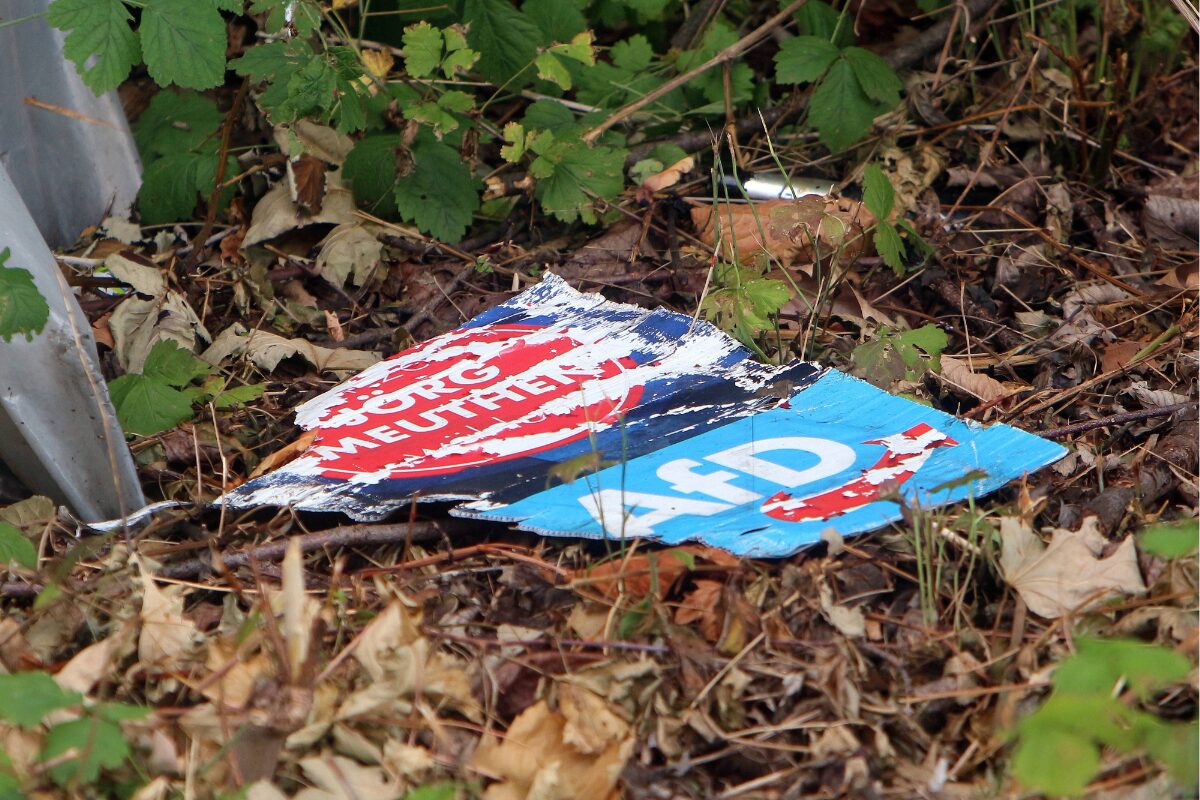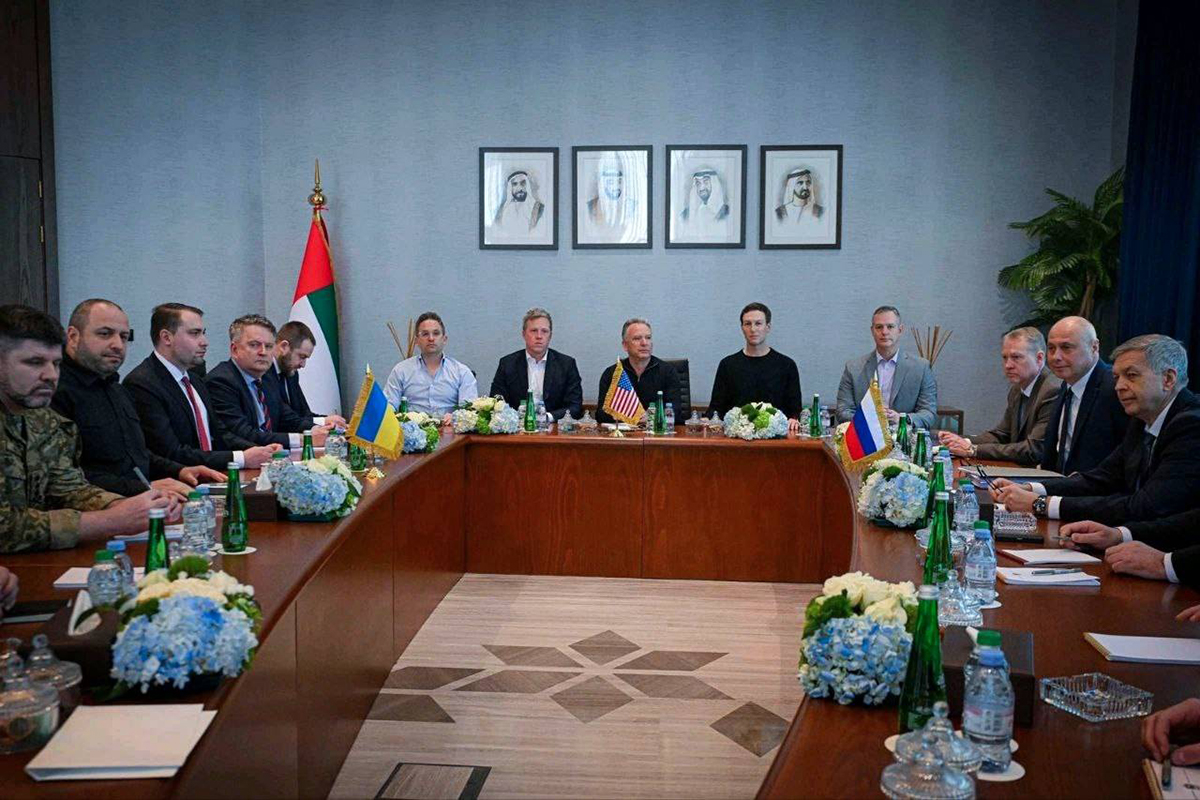„New Politics of Poland“ von Jaroslaw Kuisz: Eines der besten Bücher des Jahres 2024

Die Zeitschrift „Foreign Affairs“ hat in ihrem Ranking aus Hunderten von Titeln die besten Bücher zu internationaler Politik, Wirtschaft und Geschichte ausgewählt. Darunter: „The New Politics of Poland: A Case of Post-Traumatic Sovereignty“ von Jarosław Kuisz, Senior Fellow und Programmdirektor beim Zentrum Liberale Moderne sowie Chefredakteur der „Kultura Liberalna“.
Das „Foreign Affairs“-Ranking verdankt sein Prestige unter anderem einer Jury, die sich aus Wissenschaftlern der Princeton University zusammensetzt. Das Buch wurde dort neben Autoren wie Anne Applebaum, Steven Levitsky, Daniel Ziblatt und Rory Stewart platziert.
Jaroslaw Kuisz unternimmt mit seinem Buch einen Deep Dive in die Geschichte Polens und beleuchtet die historischen Ursachen für den illiberal Turn, den das Land mit der PiS-Regierung erlebt hat. Er selbst schreibt darüber wie folgt:
“Writing this book was both an intellectually fascinating and a practically difficult task. Some years ago, Nassim Nicholas Taleb coined the term “black swan” to describe events that fall upon us suddenly and make a huge mark in the lives of societies. In recent times, the metaphorical birds seem to fly in flocks across our skies. There is certainly no shortage of them in Central and Eastern Europe.
From the point of view of Poland, the first swan appeared in 2015, when national populists gained almost total power in the country. This was undoubtedly the most important turning point in Polish political life since the fall of communism. Recently, however, at least two more black swans have appeared in the sky: first the COVID-19 pandemic, then, in February 2022, Russia’s full-scale military assault on Ukraine.
Each successive black swan makes the previous one seem slightly smaller. Unexpected events translate into more and more new questions. Suffice it to say that in the course of writing this book much has happened, a fact reflected in the changing questions that appear in the pages of newspapers and in public debates. When once people asked “What does the illiberal turn in Poland mean?” and “Is post-2015 Poland about to bury its historic success?” now they ask “Has the European Union’s centre of gravity shifted to the East, including Poland?” or “Is it possible that illiberals from Poland and Hungary are the political vanguard of Europe rather than its epigones?”
Analysis of current politics is subject to many pitfalls. One of these is rhetorical exaggeration. In some commentator’s responses, the black swans have almost turned into the horsemen of the apocalypse. However, in the flood of events, false alarms and real concerns, I have tried to provide a measured account of the underlying processes.
In this book I have proposed a simple division into three parts. First, I tell the story of politics through the three parliamentary terms promised by the national populists. Then I move on to discuss thirty years of heated disputes throughout the post-communist era – disputes that shaped the political ground for the illiberal turn. Finally, I outline how current politics is influenced by the perspective of the long term, some 300 years. For without it, it is difficult to understand Polish reactions to Russian aggression, the country’s post-traumatic sovereignty, as well as the reason for the Catholic Church’s significant influence on political life.
The bulk of this book was written in 2021–22, with some sections added after the outbreak of war in Ukraine. The main aim of the publication is to describe the deeper background of the political turn of 2015 and after. Therefore, one should not look here for a description of very recent political party developments, in particular the day-to-day turbulence of the 2023 parliamentary election campaign. This requires a separate account, written with the advantage of hindsight. Yet, I believe this book will allow one to understand the political scene in Poland, regardless of the outcome of the parliamentary elections. I do hope also that this account will make it possible to understand the various far-reaching consequences of focusing attention on sovereignty. Be it to answer the question, why certain important worldwide topics, such as global warming, are unfortunately marginal or simply absent in the public debate.
Of course, this is only one possible framework for the present story. It is an exciting moment to be writing political analysis, but the flow of events continues unabated. I will only add that I wrote the last sentences of this book in the spring of 2023. Whether I have succeeded in answering these major questions I leave it to the judgement of the reader.”
Der US-amerikanische Politikwissenschaftler Prof. Andrew Moravcsik in seiner Rezension:
„This book seeks to explain the rise of Law and Justice, the populist far-right party that ruled Poland from 2015 through 2023. Its conservative social values, its anti-EU sentiments, and the democratic backsliding that it presided over sparked international controversy and opposition. Kuisz, a policy analyst and scholar, argues that Poland suffers from a “post-traumatic” relationship with its own history, owing to its being conquered repeatedly by larger neighbors. This legacy encourages Poles to defend their sovereignty with particular ferocity. Yet Kuisz does not attempt to show that this tendency influenced voters or politicians who recently supported the far right. The book’s real strength lies in the detailed and even-handed way it reviews the wide array of factors that contributed to the success of the extreme right: robust economic growth, poverty-reducing redistributive policies, the support of the Roman Catholic Church, the generally conservative social values of many Poles, and divisions within an opposition that still had links to the communist era. The author completed the book before the 2023 election brought an opposition coalition led by the liberal Donald Tusk into government, but this remains the best English-language guide to the last decade of Polish politics”.
Das Ranking von Foreign Affairs sowie eine vollständige Rezension des Buches finden Sie hier.
Weitere Informationen zu Jaroslaw Kuisz‘ Buch finden Sie hier auf der Webseite des Verlages.
![]()
Hat Ihnen unser Beitrag gefallen? Dann spenden Sie doch einfach und bequem über unser Spendentool. Sie unterstützen damit die publizistische Arbeit von LibMod.
Spenden mit Bankeinzug
Spenden mit PayPal
Wir sind als gemeinnützig anerkannt, entsprechend sind Spenden steuerlich absetzbar. Für eine Spendenbescheinigung (nötig bei einem Betrag über 200 EUR), senden Sie Ihre Adressdaten bitte an finanzen@libmod.de
Verwandte Themen
Newsletter bestellen
Mit dem LibMod-Newsletter erhalten Sie regelmäßig Neuigkeiten zu unseren Themen in Ihr Postfach.





